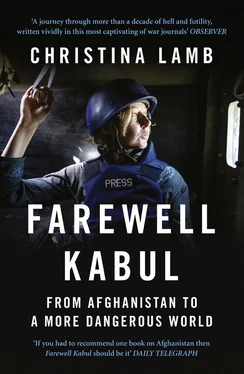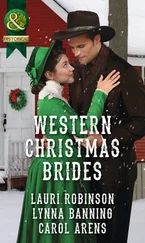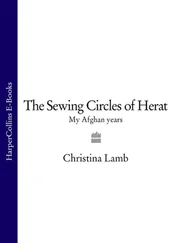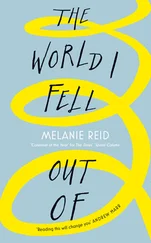Wais claimed the pigeons reminded him of the blue mosque in the northern city of Mazar-i-Sharif, a building surrounded by so many white doves that when they take to the air it feels like being inside a just-shaken snowglobe. But to me they were completely different. Pigeons, I reminded him, had left the young Emperor Babur fatherless at thirteen, when his father fell from his dovecote. ‘The pigeons and my father took flight to the next world,’ he’d written in his journal.
‘Why can’t you fly kites instead of pigeons?’ I asked.
‘You of all people should like the pigeons,’ Wais laughed. ‘When they fly they always follow the lead of a female.’
The music stopped, its owner perhaps paid off by some exasperated journalist, and I could hear peals of children’s laughter. Down on the pavement some local street kids were jumping and diving, trying to catch the snow, which was starting to fall more thickly, sending cloth-wrapped figures scurrying to their homes. Soon I would be driven inside too, to one of the freezing glass-partitioned cells with metal bars on the outside that passed for rooms at the Mustafa. But for a moment I wanted to enjoy the rare sight of children playing in this country which had seen more than twenty years of war.
The mood in Washington and Whitehall was also celebratory. Just sixty days after the first US bombing raid on Afghanistan the Taliban were gone, far quicker than Pentagon estimates. They had been driven out by a combination of American B52 bombers and Afghan fighters from the Northern Alliance, a group of mainly Tajik and Uzbek commanders who had started waging war against the Russians in the 1980s, then continued fighting against the Taliban when they took power in the 1990s.
It was an astonishing success, and seemed like a new model of war. Colin Powell, then US Secretary of State, said: ‘We took a Fourth World army – the Northern Alliance – riding horses, walking, living off the land, and married them up with a First World air force. And it worked.’
The Northern Alliance certainly did not consider itself a Fourth World army, and the fact that there was already a fighting force in place well acquainted with the Taliban was a huge advantage. Based in the picturesque Panjshir valley, they were the fighters of a legendary commander, Ahmat Shah Massoud, a poetic figure with a long, aquiline nose, blue eyes and a rolled felt cap, known as the Lion of Panjshir, whom the Russians had never defeated. Under his leadership the Northern Alliance controlled around 9 per cent of Afghanistan in the north-east – the one bit of the country the Taliban had never managed to conquer.
Massoud’s foreign spokesman was his close friend Dr Abdullah Abdullah, a short, dapper-suited ophthalmologist with a penchant for wide ties. His name was really only Abdullah, as like many Afghans he had just one name, but he had taken another ‘Abdullah’ to accommodate the need of the Western media for surnames. Dr Abdullah had repeatedly travelled to America and Britain, warning that Arab terrorists were taking over Afghanistan. He told me he had made ten trips to Washington between 1996, when the Taliban took power, and 2001 asking for help – all to no avail.4 The Americans were not interested in Afghanistan, and had no desire to get involved with a warlord who financed his operations through the trafficking of drugs and lapis lazuli. Massoud was particularly distrusted by the State Department because he received support from Iran and Russia, and because of the fact that he was hated by Pakistan, which the US wanted to keep onside. ‘They just said it was an internal ethnic conflict,’ said Dr Abdullah. Massoud himself spoke at the European Parliament in April 2001, appealing for humanitarian aid for his people and warning that al Qaeda was planning an attack on US soil.
He was hardly a lone voice. George Tenet, who was Director of the CIA at the time, later testified before the 9/11 Commission that the Agency had picked up reports of possible attacks on the United States in June, and said the ‘system was blinking red’ from July 2001. On 12 July Tenet went to Capitol Hill to provide a top-secret briefing for Senators about the rising threat from Osama bin Laden. Only a handful of Senators turned up in S-407, the secure conference room. The CIA Director told them that an attack was not a question of if , but when .
Another warning came in the first meeting between President George W. Bush and his Russian counterpart Vladimir Putin in a Slovenian castle in July 2001, the American President was taken aback when the former KGB man suddenly raised the subject of Pakistan. ‘He excoriated the Musharraf regime for its support of extremists and for the connections of the Pakistani army and intelligence services to the Taliban and al Qaeda,’ recalled Condoleezza Rice, Bush’s National Security Adviser, who was present. ‘Those extremists were all being funded by Saudi Arabia, he said, and it was only a matter of time until it resulted in a major catastrophe.’5
This was written off as Soviet sour grapes for having lost in Afghanistan. No notice was taken, nor was the Northern Alliance provided with help. It says something about Massoud’s charisma that without Western assistance or much hope of success, he kept his fighters together. ‘He always wore a pakoul [wool cap], and he’d say, “Even if this pakoul is all that remains of Afghanistan I will fight for it,”’ said Ayub Solangi, who had fought with him since the age of sixteen, and had lost all his teeth in torture in Russian prisons.
Two days before 9/11, two Tunisians posing as TV journalists came to his Panjshir headquarters to do an interview. ‘Why do you hate bin Laden?’ they asked him, just before their camera exploded in a blue flash. The assassination of the Taliban’s biggest enemy was widely assumed to be a gift from al Qaeda to their Taliban hosts, to ensure their support as the Bush administration wreaked its inevitable revenge on Afghanistan for blowing up the Twin Towers.
Before exacting revenge, the Bush administration wanted Congressional approval, as under the United States Constitution only Congress can authorise war. So just twenty-four hours after the second plane hit the South Tower, while most people were still trying to digest what had happened, White House lawyer Timothy Flanigan was already sitting at his computer urgently typing up legal justification for action against those responsible.
The last time the US had declared war was in 1991 against Iraq, so he first cut and pasted the wording from the authorisation for that. However, the problem was that this time no one really knew who or where the enemy was, so something wider and more nebulous was needed.
By 13 September Flanigan and his colleagues had come up with the Authorisation for Use of Military Force, or AUMF, for Congress to vote on. At its core was a single sixty-word sentence: ‘That the President is authorized to use all necessary and appropriate force against those nations, organizations or persons he determines planned, authorized, committed or aided the terrorist attacks that occurred on September 11, 2001, or harbored such organizations or persons in order to prevent any future acts of international terrorism against the United States by such nations, organizations or persons.’
In other words, this would be war with no restraints of time, location or means.
At 10.16 a.m. on 14 September, the AUMF went to the Senate. The nation wanted action, and all ninety-eight Senators on the floor voted Yes. From there they were bussed straight to Washington’s multi-spired and gargoyled National Cathedral for a noontime prayer meeting called by the White House for the victims of the attacks. It was a highly charged service, with many tears, prayers, a thundering organ and an address by President Bush, followed by the singing of ‘The Battle Hymn of the Republic’. Members of Congress were then bussed to the House for their vote. One after another called for unity. Four hundred and twenty voted in favour, and just one against. Barbara Lee, a Democratic Congresswoman from California, was as heartbroken as anyone by 9/11 – her Chief of Staff had lost his cousin on one of the flights. But she worried that what she called ‘those sixty horrible words’ could lead to ‘open-ended war with neither an exit strategy nor a focused target’. So to the outrage of her colleagues, she stood up and voted No. Her voice cracking, she cried as she asked people to ‘think through the implications of our actions today so this does not spiral out of control’. She ended by echoing the words of one of the priests in the cathedral: ‘As we act let us not become the evil we deplore.’
Читать дальше












